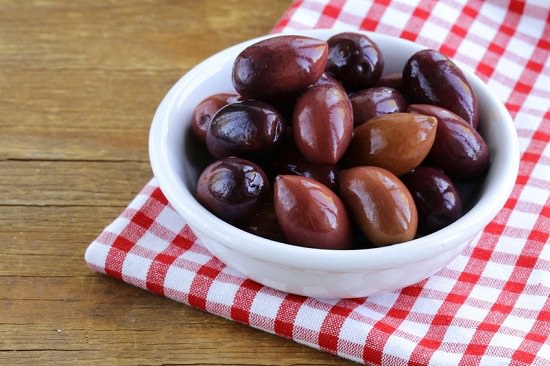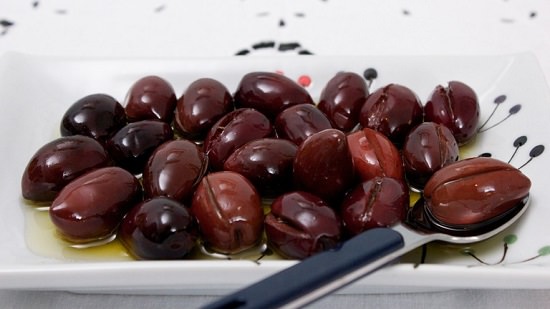Look at the health benefits of kalamata olives and why should you include them in your diet! Keep reading to know more.

Kalamata olives have been cultivated from about 5000 years ago and derive their name from Kalamata in southern Greece where they were originally cultivated. It can be classified as drupes having a central pit surrounded by a fleshy pulp.
This fruit is bitter and is used more as table olives than processed for oil. However, the olives have to undergo a debittering process before anyone can consume it. This involves soaking them in brine solution and sometimes adding wine, vinegar, and lemon to it for fermentation, which helps to improve their taste.
Nutrient composition:
- The olive oil content in it is 6.8%.
- High in fats and low in carbohydrates.
- Five kalamata olives (38gms) yield 88 calories, 6gms fat, 5 gm carbs, 3 gm fiber, 5gms protein, and 53% of daily value (DV) sodium.
Health Benefits Of Kalamata Olives

- 75% of the fats are monounsaturated fatty acids (MUFA), namely Oleic acid, which prevents heart diseases.
- It has Minerals like phosphorous, potassium, magnesium, and iron. All of them work together to prevent anemia, ensure healthy bones, and aid your heart function. They also provide vitamins A, B, C, E, and K.
- It is rich in antioxidants that neutralize free radicals in your body. This reduces the risk of chronic diseases, aging, arthritis, and degenerative diseases.
- The essential plant compounds or polyphenols present in these olives (Oleuropein) gives the olive its bitter taste. The metabolite Hydroxytyrosol has both antioxidative and anti-inflammatory properties, which are beneficial for your cardiac health.
- Oleic acid reduces inflammation due to obesity. It also prevents plaque buildup in veins, lowers high blood pressure, and reduces the risk of stroke. It also inhibits LDL( bad cholesterol) oxidation, which can lead to plaque buildup.
- The antioxidant properties of these olives prevent nerve cell damage that causes neurodegenerative diseases like Parkinson’s and Alzheimer’s.
- They have antiviral and antimicrobial properties and, thus, additionally prevent skin damage due to ultraviolet rays.
Points of caution:
- Soaking the olives in brine increases their sodium content. Therefore, you need to be cautious while consuming them as sodium can increase your blood pressure.
- Whole olives can cause choking in young children. Hence, it is better to pit and slice them before serving.
Ways to consume Kalamata olives:

- Kalamata olives have a robust, tangy flavor, and they pair well with cheese. You can serve them with cheese platters.
- You can add it to bread dough before baking it.
- As a salad dressing or as a spread on bread.
- You can use it along with tomatoes, cucumber, and feta cheese to make Mediterranean style salads.
- You can use them as a topping for pizzas and pasta.
